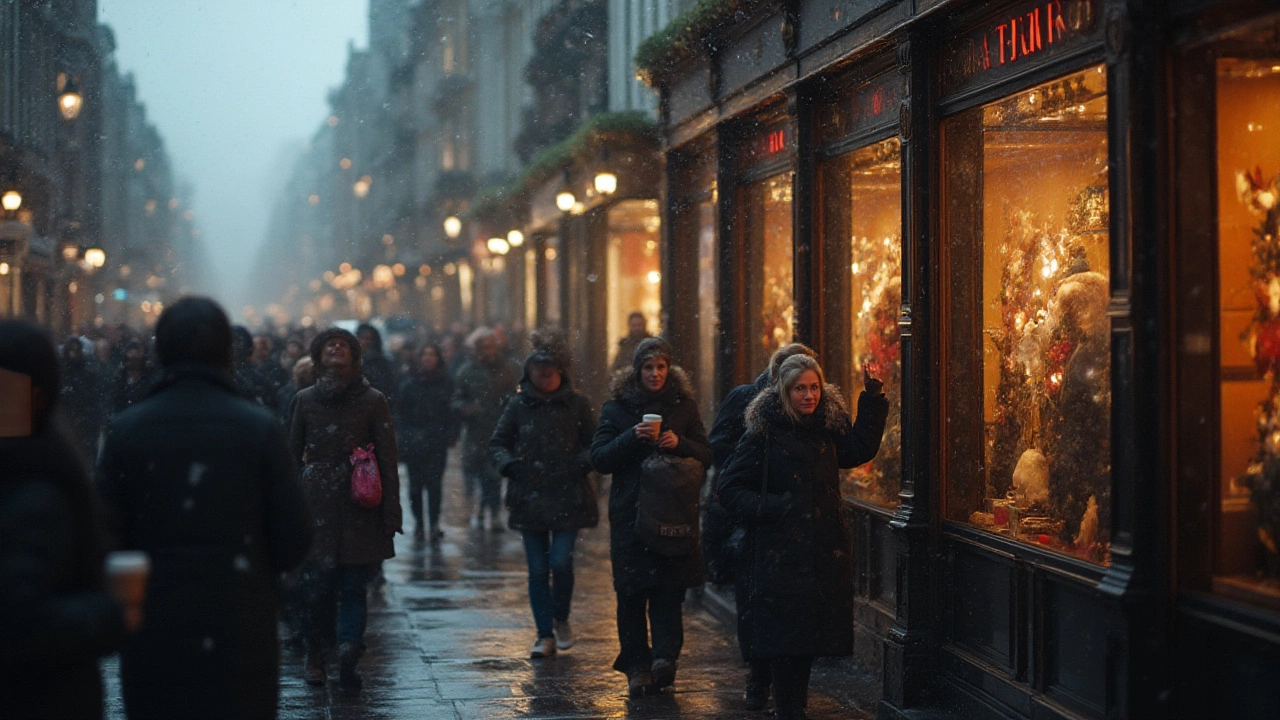Black Friday History: How a Philadelphia Term Became a Global Shopping Day
Ever wonder why retailers call the day after Thanksgiving “Black Friday”? It wasn’t always about massive discounts or online carts. The phrase started in the 1950s, when police in Philadelphia used it to describe the crush of shoppers and traffic snarls that hit the city’s downtown stores. That chaotic scene soon turned into a marketing hook, and the rest is a story of clever branding and consumer hype.
The Early Years: 1950s–1970s
In the late 1950s, store owners noticed a spike in sales right after Thanksgiving, but they also faced complaints about the crowds. To keep the peace, local news started referring to the day as “Black Friday,” a nickname that stuck. By the 1970s, the term leaked beyond Philadelphia and retailers began to claim the name for themselves. They started advertising “black” price tags—meaning they finally moved from being "in the red" (loss) to "in the black" (profit) on their ledgers. That subtle shift helped reframe the day as a win for both shops and shoppers.
Modern Boom: 2000s to Today
The internet changed everything. In the early 2000s, online retailers copied the "Black Friday" label and added their own flash sales. The day grew from a single‑store event to a nation‑wide shopping marathon, with doors opening at midnight or even on Thanksgiving evening. By 2010, major chains announced "Black Friday" deals weeks in advance, turning the day into a media spectacle. Today, the holiday isn’t limited to the U.S.; countries across Europe, Asia, and South America have adopted the term, offering deep discounts that match—or sometimes beat—American offers.
Some myths have popped up along the way. A common story claims the name comes from the idea that accountants finally turned a profit, “in the black,” on that day. While the phrase did help merchants brag about profits, the original police‑crowd origin is what sparked the nickname. Another rumor says Black Friday started as a protest against Thanksgiving, but there’s no evidence for that. The real story is a mix of traffic chaos, clever marketing, and the rise of consumer culture.
What does the future hold? With smartphones and live‑stream deals, “Cyber Monday” now sits right beside Black Friday, extending the discount window. Some retailers are even spreading sales across the entire week, calling it "Black Week." Whether you shop online or hit the mall early, the day’s core idea stays the same: a huge sales event that pushes retailers into the black and gives shoppers a chance to snag big‑ticket items at lower prices.
So next time you see a Black Friday ad, remember you’re part of a story that began with traffic jams in Philadelphia and grew into a worldwide shopping tradition. Knowing the history can make the frenzy feel a little less random and a lot more interesting. Happy hunting!

Why is Black Friday Called That? The Surprising History Behind the Name
Ever wondered why Black Friday is called that? This deep dive uncovers the real origins, myths, and quirky facts about the biggest shopping day.
